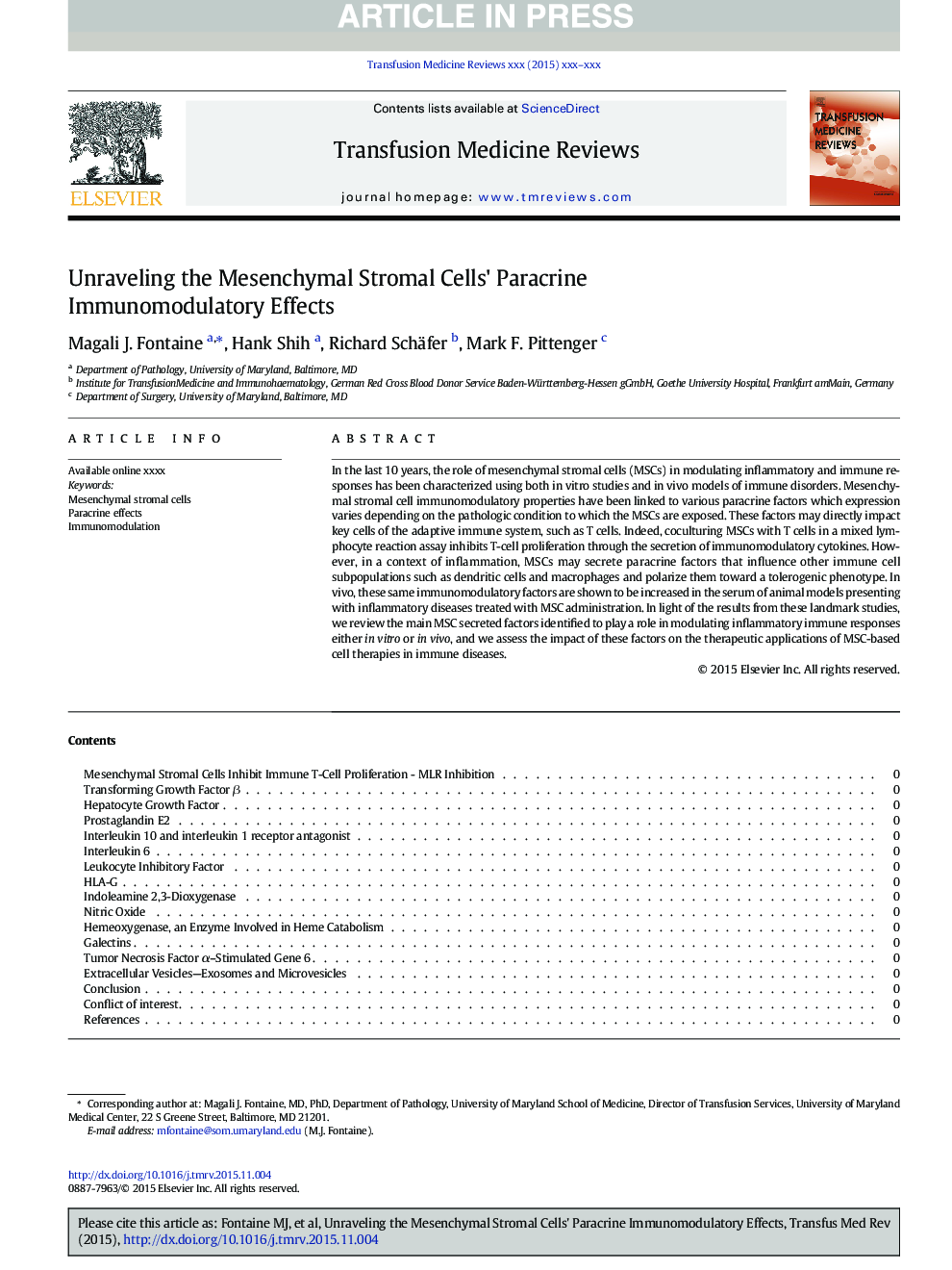| Article ID | Journal | Published Year | Pages | File Type |
|---|---|---|---|---|
| 6114347 | Transfusion Medicine Reviews | 2016 | 7 Pages |
Abstract
In the last 10 years, the role of mesenchymal stromal cells (MSCs) in modulating inflammatory and immune responses has been characterized using both in vitro studies and in vivo models of immune disorders. Mesenchymal stromal cell immunomodulatory properties have been linked to various paracrine factors which expression varies depending on the pathologic condition to which the MSCs are exposed. These factors may directly impact key cells of the adaptive immune system, such as T cells. Indeed, coculturing MSCs with T cells in a mixed lymphocyte reaction assay inhibits T-cell proliferation through the secretion of immunomodulatory cytokines. However, in a context of inflammation, MSCs may secrete paracrine factors that influence other immune cell subpopulations such as dendritic cells and macrophages and polarize them toward a tolerogenic phenotype. In vivo, these same immunomodulatory factors are shown to be increased in the serum of animal models presenting with inflammatory diseases treated with MSC administration. In light of the results from these landmark studies, we review the main MSC secreted factors identified to play a role in modulating inflammatory immune responses either in vitro or in vivo, and we assess the impact of these factors on the therapeutic applications of MSC-based cell therapies in immune diseases.
Related Topics
Health Sciences
Medicine and Dentistry
Hematology
Authors
Magali J. Fontaine, Hank Shih, Richard Schäfer, Mark F. Pittenger,
